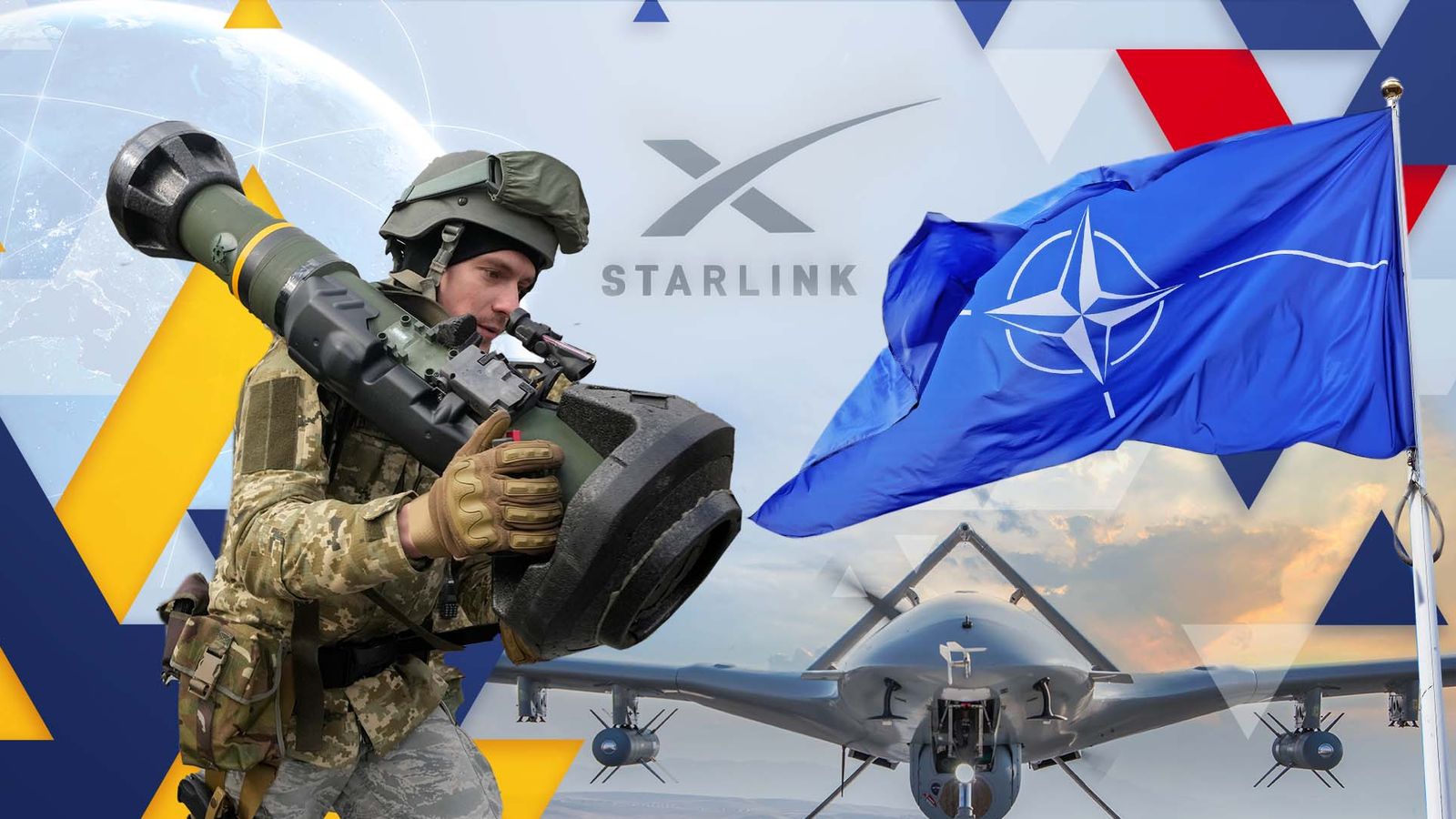The lessons military planners are learning from the Ukraine invasion and what it means if the UK went to war with Russia | World News
Throughout the Cold War, Britain’s military planners thought long and hard about what was needed to beat the Soviets if World War Three ever broke out.
Assuming both sides weren’t annihilated by nuclear weapons, they assumed a Soviet invasion would lead to a war in western Europe, and trained and equipped UK forces would need to counter that threat.
With the collapse of the Soviet Union, it was believed that the threat was no longer there, and came from other places.
But the invasion of Ukraine has changed all of that. While analysts say a direct conflict between NATO and Russia is unlikely, it is possible – particularly in the Baltic states, or Finland.
The Ukraine war is providing a golden opportunity for British and NATO military planners to observe Russia fighting on the battlefield and to plan accordingly. Here, according to former Royal United Services Institute (RUSI) head Professor Michael Clarke and retired Air Vice Marshal Sean Bell, are a few of the lessons the MoD will be taking on board.
1. The days of purely expeditionary conflicts are over
For years, since the fall of the Berlin Wall in 1989, the belief was that Western armed forces would only ever have to take part in what was known as ‘expeditionary’ wars. These are conflicts involving a strong military force going into a situation in which it has superiority, so it can win easily – for example the Gulf and Iraq wars and conflicts in Sierra Leone and Kosovo.
Now, the threat of an encounter with Russia – regarded as a military peer – is very present and it is arguable the British and other allied forces are not yet equipped for that.
Prof Clarke, former director of the RUSI and a fellow of Kings College London, told Sky News: “With British military planners … the idea of having to go all-out to fight a proper big war was ‘we’ll only do it with the US and certainly won’t be doing it for, let’s say, the next 10 years’.
“24 February showed that… Russia is now a manifest threat and will be for as long as Putin is in power and probably his successor as well. It is THE problem of European stability and security.”




